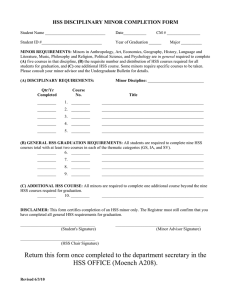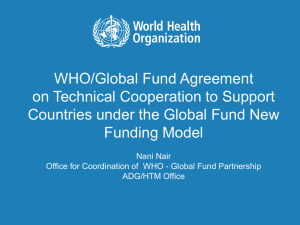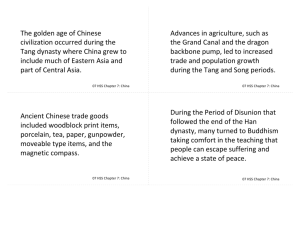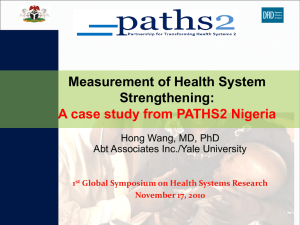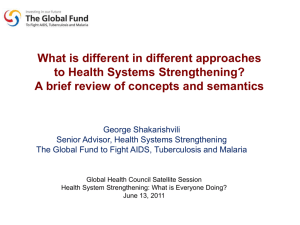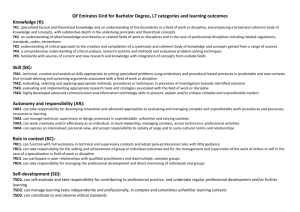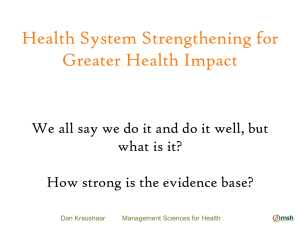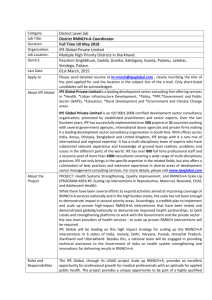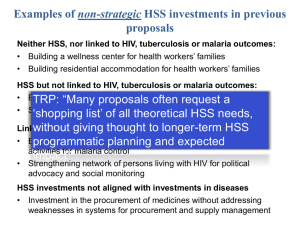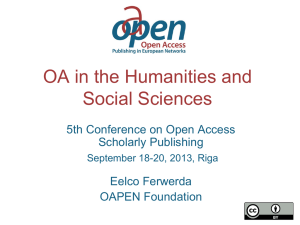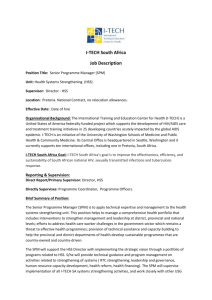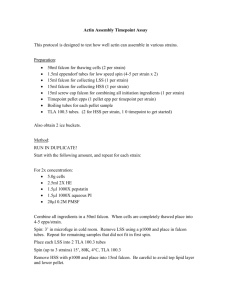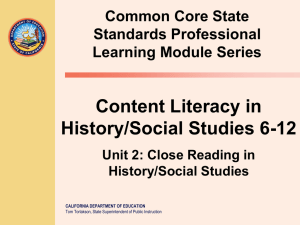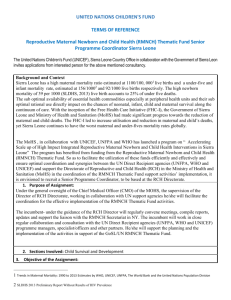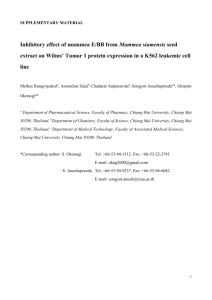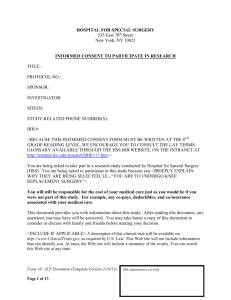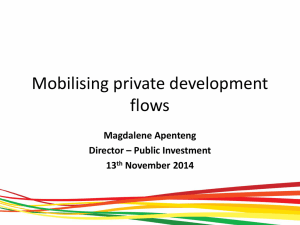Global Fund presentation - International Health Partnership
advertisement
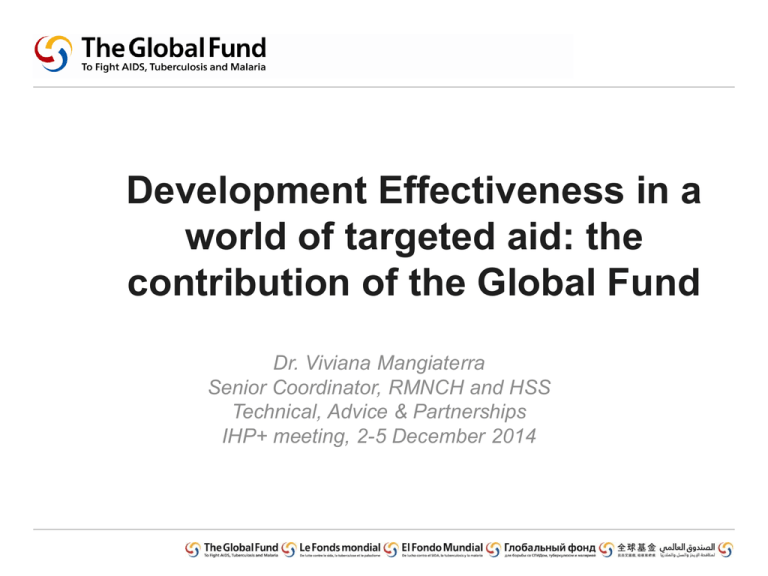
Development Effectiveness in a world of targeted aid: the contribution of the Global Fund Dr. Viviana Mangiaterra Senior Coordinator, RMNCH and HSS Technical, Advice & Partnerships IHP+ meeting, 2-5 December 2014 Global Fund’s 2012-2016 strategy: Investing for impact Strategic Action 1.3 - Maximize the impact of Global Fund investments on strengthening health systems Ensure strategic targeting of HSS investments towards most-in-need countries and highimpact interventions Enhance effectiveness of HSS investments through better alignment, harmonization, and tracking of HSS outcomes and impact Strategic Action 1.4 - Maximize the impact of Global Fund investments on improving the health of mothers and children Work more strategically with partners Develop and present for Board consideration a proposal for a targeted MNCH initiative Between 2003-2010 the Global Fund has contributed approximately $3.12 billion to RMNCH Official Development Assistance to *MNCH for the 74 Countdown Priority Countries 2003-2010 US$ (millions) 7000 6000 Total 5000 4000 Global Fund 3000 GAVI 2000 1000 0 2003 2004 2005 2006 2007 2008 2009 2010 • In 2010, it is estimated that the Global Fund share of contribution in the total ODA for *MNCH was 12% • Need to ensure that how we invest leads to optimal RMNCH outcomes Mills et al. 2012. Lancet *The study did not include “Reproductive health” NFM is a key opportunity for driving development effectiveness and for increasing integration across subsectors. Ongoing Country Dialogue 2nd GAC TRP National Strategic Plan Concept Note Grant-Making GAC • Country allocation communicated Mar 2014 • CCMs submit split for Secretariat sign-off • RMNCAH activities often spread across concept notes • TRP reviews concept notes for strategic focus and technical soundness Board • Country team and country finalize grant agreement documents Grant Implementation 3 years • After Board approval, grant is signed and disbursements can begin How will the Global Fund invest in HSS? Five Priority Areas 1 Service delivery 2 Procurement and Supply Chain 3 Health Workforce 4 Health Management Information System (HMIS) 5 Financial Management/Expenditures/Resources tracking 5 Innovative partnerships for investing in HSS and RMNCAH Integration • Aim is to improve alignment of GF investments with UNICEF, UNFPA& WB efforts to improve RMNCAH health outcomes through more integrated approaches MoU with UNICEF (signed April 2014) Aim: To maximize availability of essential medicines and commodities • Strengthen: – diagnosis and treatment for pneumonia, diarrhea to complement GF malaria inputs – ANC platform to complement GF inputs in HIV and malaria • Jointly identify countries and integrate packages of care • Support governments to revise national strategies to strengthen alignment and donor support MoU withUNFPA (signed August 2014) World Bank RBF Collaboration Aim: To improve sexual and reproductive health through universal and integrated SRH services, including HIV services Multi-donor trust fund that supports Results Based Financing (RBF) approaches in the health sector for achievement of the healthrelated focus on MDGs 4&5 • Jointly identify countries to increase access to SRH commodities • Mobilize additional funding to target barriers to delivery, including human resources; forecasting, procurement and supply chain management • Establish joint M&E tools and modalities NFM: Challenges and opportunities for driving improvements of the health system • Imbalances in overall capacity and resources between well funded HIV, TB and malaria programs and poorly resourced RMNCH programs continue to be a barrier to integrated service delivery. • This is an opportunity to amplify the impact of integration. While technical partners and donors support the creation and development of linkages between disease-specific programming and RMNCH, the support itself is not harmonized. • While many countries have leveraged HSS funding to drive integration efforts in innovative ways, its full potential remains unleveraged, particularly in relation to integrated procurement and supply chain management (PSM), management of Human Resources for health (HRH) and health management information systems (HMIS). • There are significant opportunities for operational research in the area of integrated service delivery.
